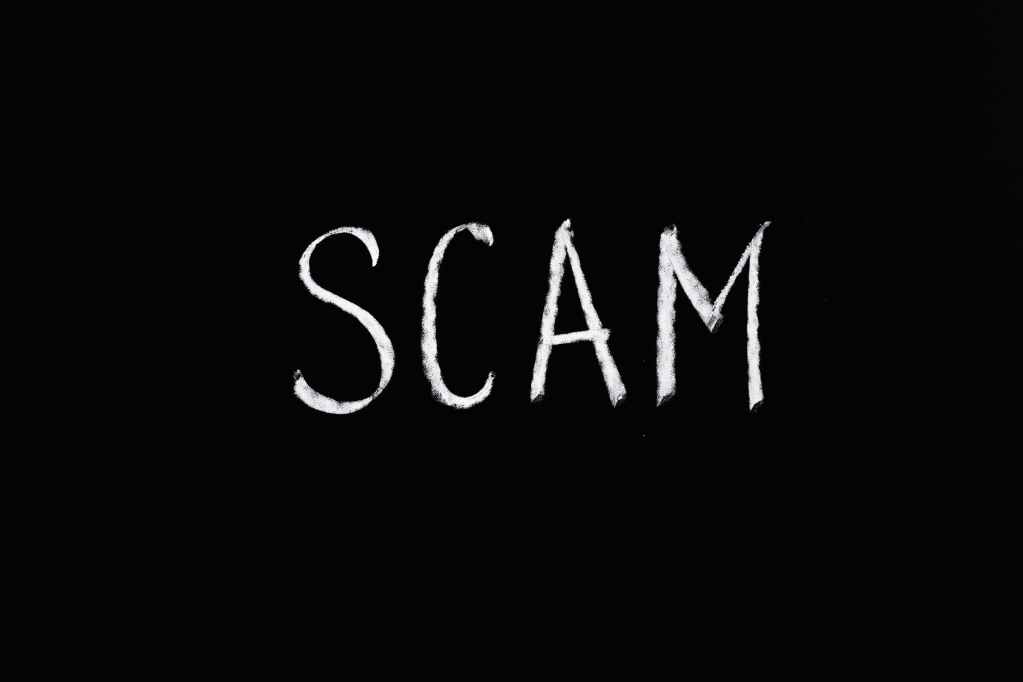New technology brings investors; it also brings bad actors
As we find ourselves surrounded by new technologies and ideas capable of taking the human race to the next level, we must exercise caution. As with all new things, blockchain and cryptocurrencies have drawn a crowd. But it’s also attracting bad actors—ones whose intentions lie only in deceiving cryptocurrency users new and old for financial gain.
Not only is this activity extremely damaging to the industry. As we all know, nothing spreads faster than bad news. It damages the reputation of an initiative on the cusp of mass adoption. However, it’s essential to understand the risks and what they look like in the real world before getting everyone involved.
Cryptocurrency scams most often fall into two categories:
- Scammers try to get information that gives them access to a digital wallet or other private information such as security codes. In some cases, this even includes access to physical hardware.
- Transferring cryptocurrency directly to a scammer under false pretenses.
It’s happening at such levels due to the already complex nature of generally interacting with blockchain wallets and dapps. Telegram and Discord chats are awash with helpful people. At the same time, they make the perfect hunting grounds for bad actors. Additionally, the process of keeping private keys and passwords safe is arguably not being taken seriously by newer entrants. If you have a blockchain wallet and lose the seed phrase and password – your funds are lost forever. Yes, it’s that serious.
Take a minute to protect yourself
In case you have installed a blockchain wallet like Metamask. You are now sitting there thinking, “wait a minute, I didn’t take all those messages about recovery phrases seriously.” Let’s go through capturing your private key and recovery phrase and get this article started with the knowledge your funds are now much safer.
It’s also worth knowing that a blockchain wallet connects to your browser. If you damage your device, you will need to reinstall Metamask and use these credentials to ensure you get your assets back into the new wallet. In this example, I will use the most commonly installed blockchain wallet – Metamask. If you have both the private key and recovery phrase stored safely, just jump straight past the explainer into the first crypto scam to watch out for.
Metamask Recovery and Private Key
Step 1. Click the three dots in the top right corner of the Metamask desktop app.

Step 2. Click on Account Details.

Step 3. Click on Export Private Key.

Step 4. You are prompted to enter your password. This is the password you enter to access the application. Enter that and click enter.

Once you type in your password, Private Keys are revealed. It is vital to keep multiple copies of this. Storing it in the cloud is risky and should be avoided. Write it down on a bit of paper and keep it safe. Better yet, etch it into a piece of copper or metal plating. Why? Because if your house burns down, so will your bit of paper. An etched bit of metal should survive.
The second part of the process is to keep a copy of your secret recovery phrase.
Step 1. Click the circular icon in the top right of the app, under the one you clicked previously.

Step 2. Click Settings from the drop-down menu that appears.

Step 3. From the settings drop-down menu, then select Security & Privacy.

Step 4. Click Reveal Secret Recovery Phrase. You are asked once again for your Metamask password. Enter that, and your recovery phrase will appear.


Regarding this information storage, follow the same advice as that given for the Private Key above.
Most Common Crypto Scams
Now, that’s all taken care of, and you can rest easy that you have protected yourself, from, well, yourself. Now let’s look at the other bad actors out there and the tactics they will employ to scam you.
Fake Dapp Websites
Countless instances of fraudulent dapp websites have been detected and reported. Google is very good at shutting them down. But in some cases, they even managed to engage ad campaigns across Google before being discovered. Most dapps display their official URL so users can be diligent. However, it’s easy to get sucked in when the site is an exact carbon copy. Decentralized exchange apps like SushiSwap and Uniswap have fallen victim to this.
Here, users believe they are interacting with the official dapp. As with all dapps, the first point of contact is to connect a wallet. Users will be asked to provide a password and give up that vital private key and recovery phrase.
Phishing Scams
Phishing scams in the cryptocurrency space consist of bad actors targeting information about online wallets. Scammers are drawn to crypto wallet private keys, which are required to access funds within the wallet. Surprisingly, the scam is not all that complex, and yet still, people are falling for it.
They send emails to holders to a specially created website that asks them to enter private key information. When the hackers have acquired this information, they can steal the cryptocurrency in those wallets.
Blackmail and Extortion Scams
Blackmail emails are becoming more and more frequent. Not just to individuals but organizations within the crypto space as well. The scammers will perform a DDOS attack on their website when attacking organizations, rendering it unusable. Then the leaders of that company may receive a ransom message via telegram, for example. The letter usually states that the site will return to normal once X amount has been paid. In most cases, the organization is well equipped to deal with these types of attacks, and the success rate of the scammers is low. However, it is still a problem for smaller sites and organizations with lesser resources.
For individuals, scam artists will sometimes claim to have a record of adult websites or other illicit web pages visited by the user and threaten to expose them unless they share private keys or send cryptocurrency. These cases represent criminal extortion and can be reported to local authorities.
Imposter and Giveaway Scams
Scammers also try to pose as celebrities and business people involved with the projects you follow or cryptocurrency influencers. To capture the attention of potential targets, many scammers promise to match or multiply the cryptocurrency sent to them in what is known as a giveaway scam. Well-crafted messaging from what often looks like a valid social media account can often create a sense of validity and generate a sense of urgency. This mythical “once-in-a-lifetime” opportunity can lead people to transfer funds quickly in hopes of an instant return.
For example, six months before March 31, 2021, reports of more than $2 million in cryptocurrency transferred to Elon Musk impersonators. According to the FTC, 14% of reported losses to imposters of all types are now in cryptocurrency.
Be especially careful when interacting with online community groups on Telegram or Discord for example. These are the hunting grounds of scammers looking to pose as helpful moderators. In most cases, the official moderators of a channel will never contact a community member first, so be aware of unsolicited messages. In some cases they are indeed very helpful, luring people into a sense of security, before making their move to get your private keys. A moderator doing their job correctly has no need for any of these pieces of information at any time. The most common thing they may ask for is your wallet address. Which is public and will not leave you exposed.
New Crypto-Based Opportunities: ICOs and NFTs
With the rise of new crypto-based investments such as initial coin offerings (ICOs) and non-fungible tokens (NFTs), there are now even more avenues for scammers to try to gain access to your money. The background of these investments is beyond the scope of this article, but what’s important to know is that although crypto-based investments or business opportunities may sound lucrative, this doesn’t always reflect reality.
For example, some scammers create fake websites for ICOs and instruct users to deposit cryptocurrency into a compromised wallet. In other instances, the ICO itself may be at fault. Founders could distribute unregulated tokens or mislead investors about their products through false advertising.
In the NFT space, we have seen countless collections arise, riding the wave of positivity and hype. Only to then fall flat and leave holders with next to useless items. Another more complex scam in this space involves NFT creators sending NFTs to influencer and celebrity wallets without them knowing or asking for them. That action is then recorded on the blockchain and can trigger buy alerts for potential buyers who now think that a big influencer or celeb has just purchased an NFT. Leading them to do the same.
DeFi Rug Pulls
DeFi rug pulls represent another type of scam to hit cryptocurrency. DeFi aims to decentralize finance by removing gatekeepers for financial transactions. It has become a magnet for innovation in the crypto ecosystem. However, the development of DeFi platforms is plagued by problems. Bad actors have made away with investor funds via such avenues. This practice, known as a rug pull, has become especially prevalent as DeFi protocols have become popular with crypto investors interested in magnifying returns by hunting down yield-bearing crypto instruments.
The premise is quite simple. The DeFi platform will have its token that promises holders explosive APY % if staked for a long time. Investors then swap a token such as Ethereum to this new token and stake it in the DeFi platform. In some cases, the founders can hold the keys or have written in some deceptive code allowing them to drain funds, leaving investors empty-handed. Alternatively, the token can simply plummet in price, leaving users empty-handed. In most cases, the rule to observe is that if it is too good to be true, it is just that. Don’t be lured into crazy gains without first thinking if this can be legitimate.
In Summary
The blockchain and cryptocurrency space is not a place to step without advice from other users or education beforehand. Putting power back into the hands of users is a worthy cause championed by blockchain pioneers. However, it’s potentially something the human race will need to adapt to after years of hand-holding from centralized entities over the long term. New systems such as social recovery and guardians arise to make security and recovery far more accessible, but they also come with challenges.
One thing that unties this space is the generosity and helpfulness of the good actors in it. Those with a deeper understanding of wallets and dapps are always happy to share their knowledge. As mentioned, you can stay away from trouble by keeping a straightforward thing in your mind. If something looks too good to be true, then it probably is. Always do your own research and stay safe.














Thanks for the helpful warnings. It’s always good to have a refresher on all the angles bad actors are using. I wasn’t aware of DeFi Rug Pulls, so I learned something new.